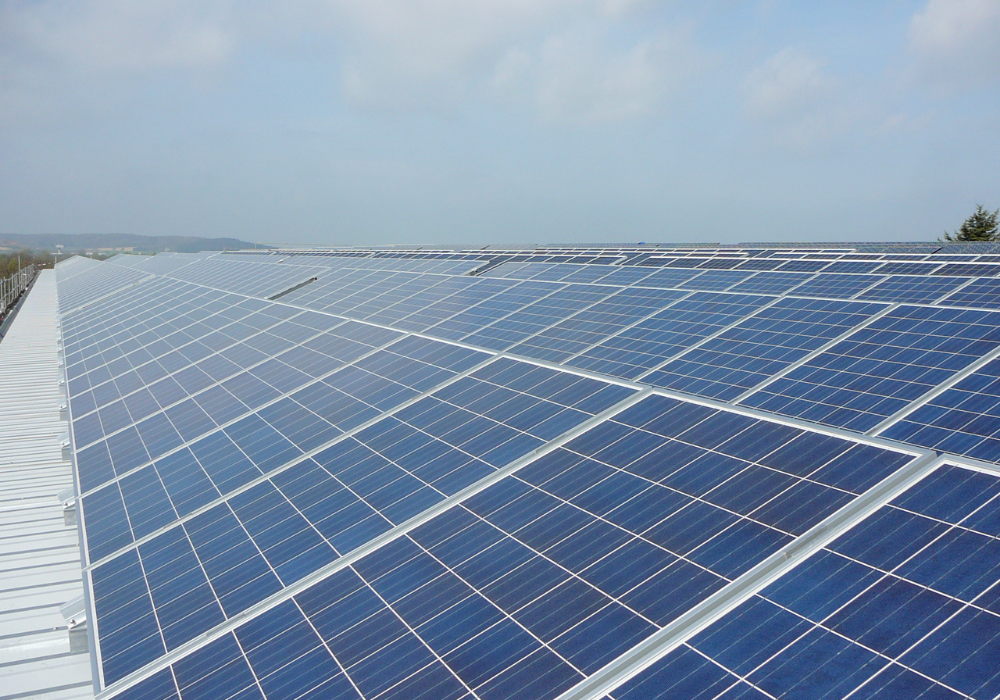
China, the US, and Japan have been revealed as three of the biggest countries to make considerable investments in clean energy capacity during 2019.
Data recorded by BloombergNEF (BNEF) shows the top 10 nations’ combined overall funding for renewable energy capacity reached $266bn over the past 12 months.
A key reason behind the figures was a late surge in offshore wind power, which took capacity investment in that sector jump by 19% from 2018 to figures $29.9bn, according to BNEF’s State of Clean Energy Investment report.
Harminder Singh, power director at data and analytics firm GlobalData, believes the large wind capacity addition in the US last year was driven by the expiration of the country’s production tax credit (PTC) at the end of 2020.
“There is a huge rush of projects to meet the deadline,” he added.
“With declining prices, wind and solar with affordable energy storage are rapidly becoming a viable option to replace existing fossil fuel plants that are set to retire.”
Here, NS Energy takes a look at the top 10 countries to invest in clean energy capacity in 2019.
Top 10 countries for clean energy capacity investment in 2019
China
Although China remained the world leader in renewable energy capacity in 2019, it slipped back on its investments over the past 12 months, falling to $100bn from $110bn in 2018.
Wind power accounted for more than half of the funding at $56.4bn in 2019 — up from $51.6bn the previous year.
Solar took a huge investment hit, having reached $41bn in 2018, but dropping to $29.8bn last year.
Energy-smart technologies also fell victim to the decrease in funding, plummeting from $13.6bn in 2018 to $9.1bn in 2019.
However, investments in small hydro, biomass and waste, biofuels, and low-carbon services and support increased to $5bn over the past 12 months, from $3.8bn the previous year.
United States
The US tallied the second-highest amount of investments in renewable energy, following a jump from $65.1bn in 2018 to $78.3bn last year.
Wind power experienced a large increase from $22.2bn in 2018 to $32.1bn over the past 12 months, while solar rose to $24.7bn in 2019 from $22.1bn the previous year.
Energy smart technologies had a slight rise in funding, up to $16.9bn from $15.4bn in 2018.
Investments in biomass and waste, biofuels, low-carbon services and support, geothermal, and marine decreased from $5.4bn in 2018 to $4.5bn last year.

Japan
Japan experienced a drop in financing for clean energy capacity last year, down to $25.1bn from $28.5bn in 2018.
Although solar continued to be the country’s biggest renewable technology to attract investment, it decreased to $14.4bn in 2019 from $15.3bn the previous year.
Wind has received little financing in recent years and had a further reduction in investments in 2019, dropping to $600m from $1.9bn in 2018.
Energy-smart technologies also experienced a decrease in funding over the past 12 months, down from $8.3bn to $6.5bn.
But biomass and waste, biofuels, low-carbon services and support, and geothermal investments went up to $3.6bn in 2019 from $2.9bn the previous year.
India
India had a slight decrease in clean energy investments over the past 12 months, down from $11.7bn in 2018 to $11.4bn, despite the country looking to considerably ramp up its share of renewables.
Wind took a big hit, decreasing to $2.5bn last year after reaching $4.2bn in 2018.
But solar power increased in 2019, up to $8.1bn from $6.9m the previous year.
Although investments in energy-smart technologies, biomass and waste, biofuels, and small hydro continued to remain low, funding did rise from $600m in 2018 to $800m last year.
United Kingdom
Financing for renewables in the UK experienced a dip in 2019, down to $9.5bn from $11.3bn during the previous year.
Although wind continued to be the country’s most popular clean energy source for investors, it dropped to $4.3bn from $5.9bn in 2018.
Solar currently still receives a relatively low level of investments in the UK, but did increase to $600m in 2019 from $200m the previous year.
Energy-smart technologies had a slight increase in funding, up to $2.8bn over the past 12 months from $2.7bn in 2018.
Biomass and waste, biofuels, low-carbon services and support, and geothermal investments dipped from $2.5bn in 2018 to $1.7bn in 2019.
Taiwan
Taiwan has experienced a huge increase in clean energy investments, up to $9.5bn in 2019 from $2.5bn the previous year.
Wind power capacity funding boomed over the past 12 months, rising to $7.8bn from $600m in 2018.
Despite the increased popularity in Taiwan’s renewables, solar investments dropped to $1.3bn in 2019 after reaching $1.5bn a year earlier.
But energy-smart technology financing remained stable at $300m.
Spain
Spain was another country to have a considerable increase in capacity investments for renewable technologies, rising to $9bn last year from $7.1bn in 2018.
Funding for solar more than doubled in 2019, up from $3bn in 2018 to $6.1bn, with wind suffering a $600m drop to $2.5bn compared to the previous year.
Investments in energy-smart technologies, and biomass and waste plummeted to $400m over the past 12 months from $1.1bn in 2018.

Germany
In 2019, Germany experienced a drop in clean energy investments to £8.7bn from $10.8bn in 2018, despite aiming to source 65% of its power from renewables by 2030.
Solar funding increased to $3.8bn last year, up from $3.3bn, while wind dropped significantly to $1.2bn from $3.6bn in 2018.
Energy-smart technologies took a slight hit in 2019, down to $3bn from $3.1bn the previous year.
Investments in small hydro, biomass and waste, biofuels, low-carbon services and support, and geothermal dropped to $600m last year from $700m in 2018.
Netherlands
The Netherlands had a $700m increase in financing for clean energy capacity in 2019, up to $7.1bn.
Solar investments increased from $2.1bn in 2018 to $3.1bn last year, but wind experienced a slight hit, down to $2.2bn from $2.1bn the previous year.
Although energy-smart technologies dropped to $1.4bn from $1.9bn in 2018, biomass and waste, biofuels, and geothermal each experienced a funding increase to more than $100m last year, having previously received little to no financing in 2018.
Brazil
Investments in renewable energy capacity in Brazil almost doubled in 2019, up from $3.9bn in 2018 to $6.9bn over the past 12 months.
Wind boomed in the country last year, rising to $3.5bn from $1.4bn in 2018, with solar financing also experiencing an increase to $2.5bn in 2019 from $1.7bn during the previous year.
But funding for energy-smart technologies, biomass and waste, biofuels, and small hydro dropped to $700m last year from $900m in 2018.






